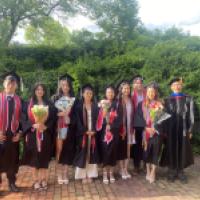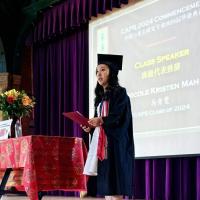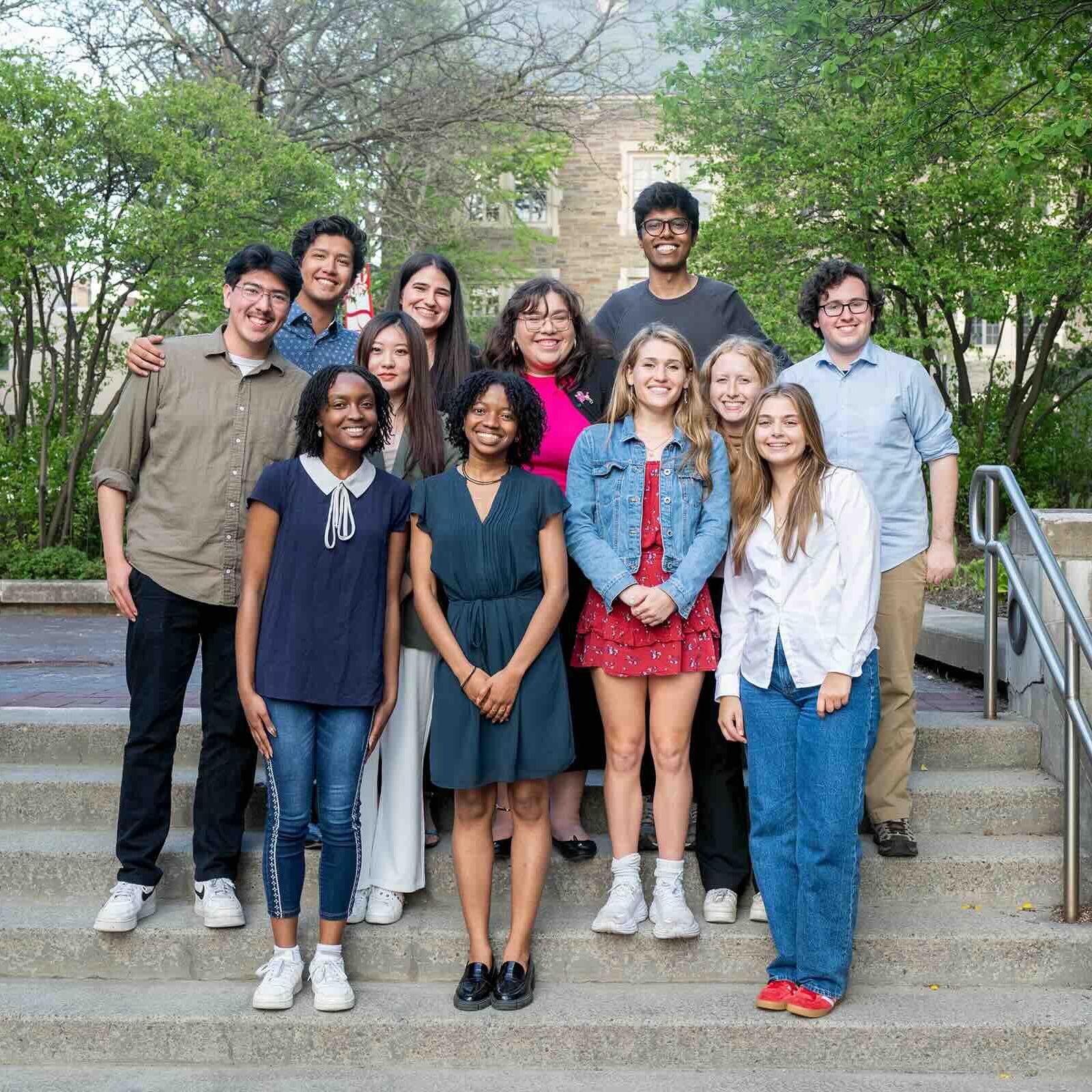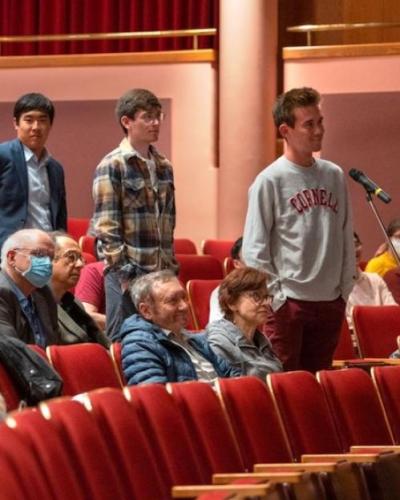Energy rationing in Europe. Shifting global alliances. The end of the free world.
Those dire consequences and others were raised by a panel of faculty and journalist experts during a Sept. 22 panel discussion about the ongoing conflict that began with Russia’s invasion of Ukraine.
The event, “Aftershocks: Geopolitics Since the Ukraine invasion,” was part of the College of Arts and Sciences’ Arts Unplugged series and featured Ann Simmons, the Wall Street Journal’s Moscow Bureau Chief and the fall 2022 Zubrow Distinguished Visiting Journalist Fellow; Mark Landler, the New York Times’ London bureau chief; Peter J. Katzenstein, the Einaudi Center’s Walter S. Carpenter Jr. Professor of International Studies in the Department of Government in A&S and Jessica Chen Weiss, the Michael J. Zak professor of government in A&S and a professor in the Cornell Jeb E. Brooks School of Public Policy.
Ray Jayawardhana, the Harold Tanner Dean of A&S, Hans A. Bethe Professor and professor of astronomy, moderated the discussion.
The event, recorded by eCornell, can be viewed on the A&S YouTube channel, as well as the eCornell website.
As the war began, panelists said, reactions were swift, striking and varied among countries, with many offering support to Ukraine and condemning Russia and others taking middle-of-the-road positions.
“In the end, we’re seeing this troika of India, China and Russia coming forward to form this new alliance,” Simmons said. “Russia has been compelled to look to the East for allies.”
China’s President Xi Jinping is walking a fine line between saying he understands Russia’s grievances, but not offering full-throated support, Simmons said. India has said “this is not the era for war,” but the country gets most of its military supplies from Russia and wants that relationship to continue, Simmons said.
“Beijing is trying to stake out a strategic straddle,” Weiss said. “It’s providing diplomatic cover and a way to support Russia, but it’s also complied with military sanctions and limited its support to Russia.”
The U.K. has been a strong supporter of Ukraine, Landler said, as the first country to provide lethal defensive weapons and push for sanctions.
“In a post-Brexit world, the Brits are eager, if not desperate, to show they’re still relevant,” he said. “The one area where they are relevant is in the military and security realm – they do have the strongest military in NATO aside from the U.S.”
And while support for sanctions has also been strong across the rest of Europe, that support may fade with energy shortages this winter.
“The tension of skyrocketing energy costs, the potential of energy rationing or of industries being shut down because of a lack of natural gas, is incredibly volatile and unpredictable compared to the impacts in the U.S.,” Landler said.
Throughout Russia, however, support for Putin and his “special military operation,” remains high, Simmons said.
“You have to remember that the propaganda machine in Russia is a well-oiled machine,” she said. “Ordinary people say, ‘We have a leader who is trying to protect our country, trying to make sure that the West doesn’t cancel Russia.’“
This tone may change with the recent mobilization of people to serve in the military, she said, noting the lines of young men trying to flee the country.
For NATO, the war has revived its status as a revered organization, Katzenstein said, but its future is being “held hostage” by America’s domestic political crisis.
“Why are we so sure there is a President Biden in 2025? Why not imagine another president, perhaps not elected democratically, taking office?” he said. “If our next election is rigged, we will be so preoccupied with ourselves that we can’t pay attention to the world. [If this happens,] the U.S. is not the leader of the free world any longer. There is no free world anymore.”
Weiss agreed that the war is raising questions about the current political world order.
“Even as we feel the aftershocks of Ukraine, the U.S. is also simultaneously on another dangerous trajectory with China in the present moment, particularly given the narrative of democracies against authoritarian regimes,” she said. “On the current course, we are headed into an incredibly fraught geopolitical environment, one that will crowd out the necessary resources we need to tackle our shared challenges and continue to put strains on an international order that is already quite eroded.”
Biden made some headway toward more inclusive dialogue at the U.N. General Assembly earlier this month, she said, noting the U.N. Charter was created in 1945 by a diverse set of countries, beyond just those with democracies.
“If peace is the ultimate objective, then we don’t need to beat China or defeat Putin,” Weiss said.
Most panelists said they expect the war to continue for some time, as both Putin and Zelensky, pushed by forces within their countries, remain unwilling to make concessions.
Simmons said it looked likely Ukraine would have to cede some of its territory, and “pressure for doing that may come from the West,” because Putin is unlikely to end the war without having some kind of tangible victory to show his people.







